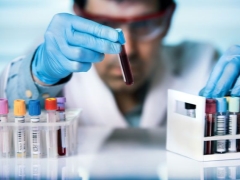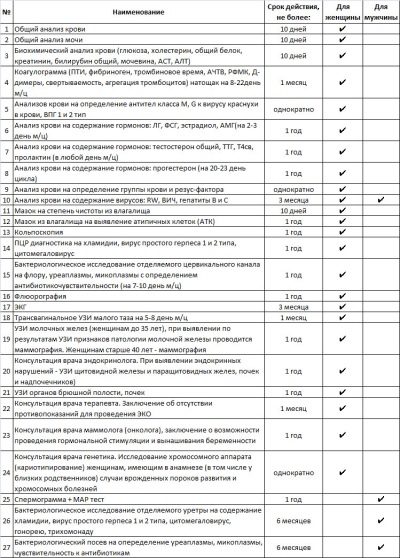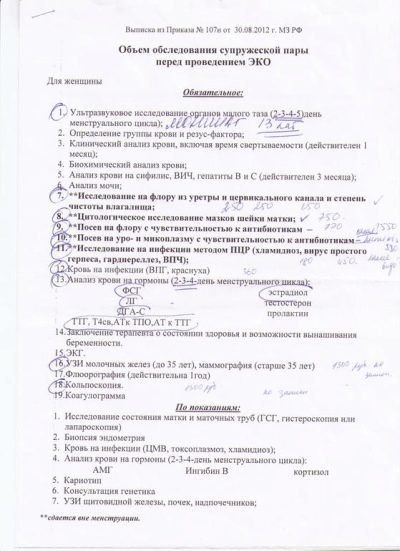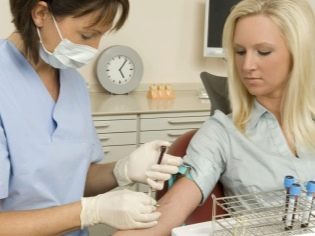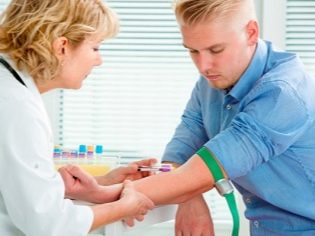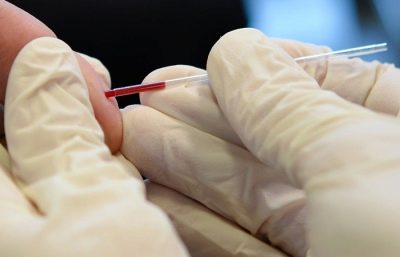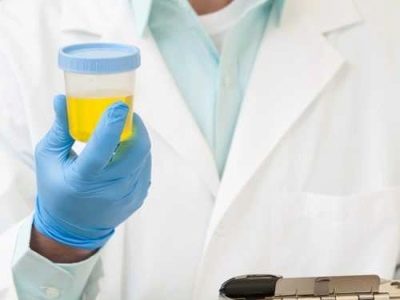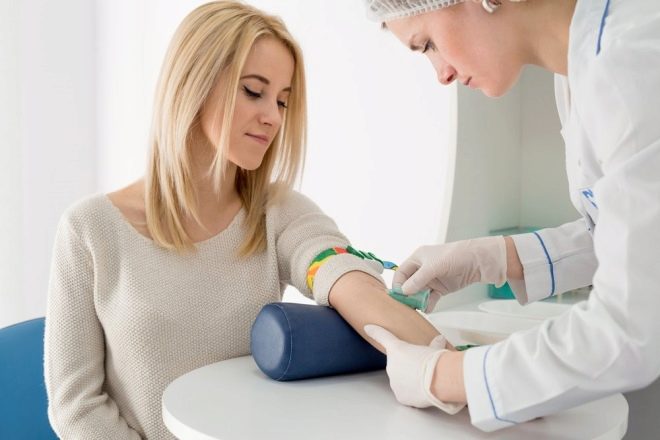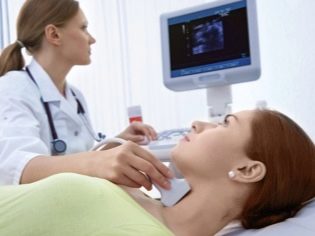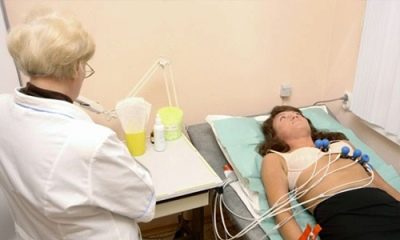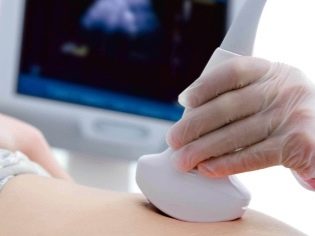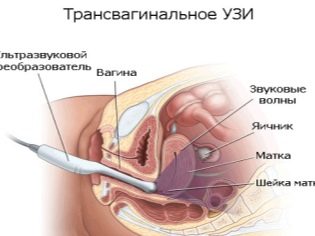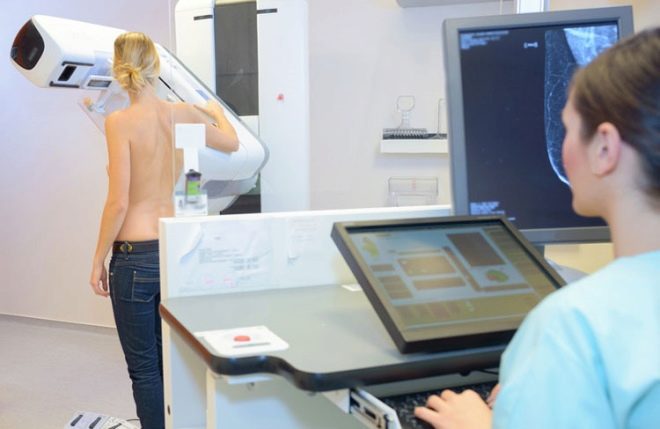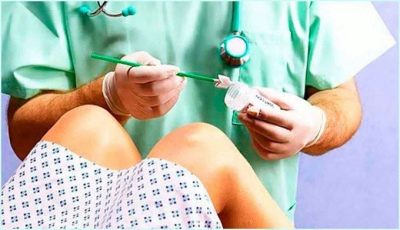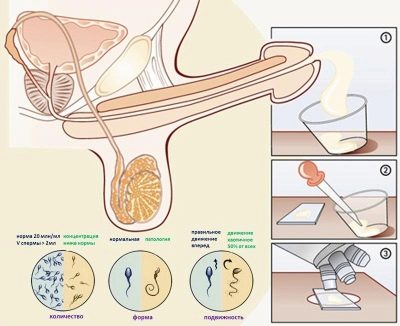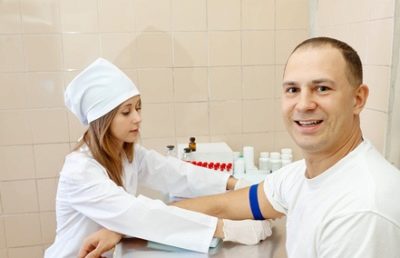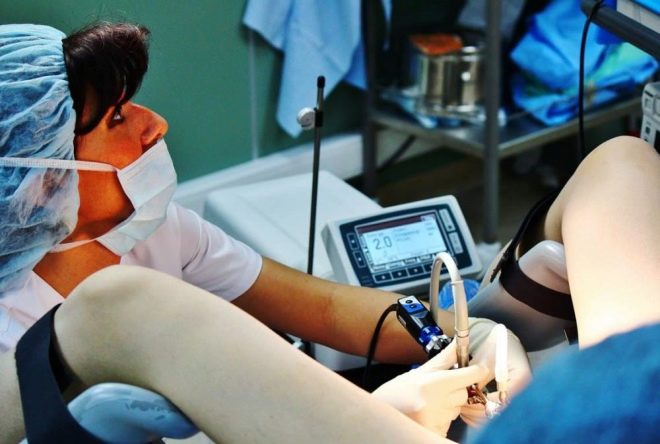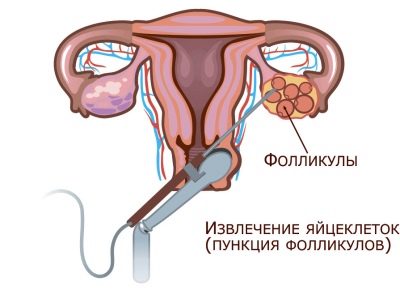Examinations and analyzes required for IVF
In vitro fertilization, which appeared about 40 years ago, gave infertile couples a chance to become parents. Until reproductive assistive technologies were not used, these couples had no choice but to accept childlessness and adopt a foster child. Since 2012, IVF has been supported by the state and can be made for medical reasons free of charge under the OMS policy. How to properly prepare for the procedure and what tests should be taken, we will explain in this article.
Required tests
Preparing for artificial insemination requires a fairly painstaking approach. Since the procedure itself is high-tech, a medical examination in front of it is mandatory. Below we provide a basic list of required research.
It should be understood that, taking into account the individual causes of infertility, this list may be supplemented by the attending physician, and individual tests and tests may be included in it.
Much will depend on the true cause of infertility. Most often it is either endocrine, or associated with obstruction of the tubes and depletion of the endometrium of the uterus. The male factor of infertility is most often associated with metabolic disorders, hormonal, as well as with inflammatory diseases and infections of the urogenital system.
The list of analyzes prescribed by law, and therefore they can not be less than the IVF protocol provides. Treat them should be more than serious, because in the absence of only one certificate or in the presence of analysis with the expired result of the result, the couple may be denied the procedure.
Analyzes and examinations before IVF - not a fad of medical staff and not an attempt to "lure" out of a pair of money, as some people think. A full range of research is needed so that the doctor can be well aware of the difficulties with which the procedure can be carried out and how likely its success is.
Mandatory include analyzes of three areas:
- examination of women;
- examination of both spouses;
- examination of the husband, if you plan to use his sperm for IVF.
If the decision to conduct IVF is made, the pair will be given a checklist with a list of analyzes, as well as an indication of the validity of the results.
In each clinic, by the way, they have their own validity periods, and if the couple decides to apply ready-made tests to another medical institution, it may turn out that a number of tests will have to be re-passed, since they will be invalid.
Therefore, it is best to immediately clarify the dates of action, then not to spend extra money and valuable time. And now let's take a closer look at what and why you need to pass the woman, man and both of them.
Analyzes for both spouses
General clinical studies of blood and urine are considered mandatory. In addition, each spouse rents:
- blood for syphilis (RW);
- blood for HIV status;
- blood for TORCH infection (antibodies to rubella, herpes, cytomegalovirus, toxoplasmosis);
- blood for viral hepatitis B, C;
- blood per group and rhesus affiliation.
The validity of these tests is often standard and is three months. The exceptions are the study group and Rh blood. This result is considered to be indefinite, because the group and the Rh person during life do not change.
Tests for women
The list of studies that are assigned to a woman before IVF, almost always looks pretty standard and does not depend on whose sperm will be fertilized - a husband or a donor. It includes the following analyzes.
Complete blood count (KLA). Surrenders without prior preparation in the morning on an empty stomach, blood is most often taken from the finger. Allows you to establish the balance of the main components of blood. Most often, the analysis period is 10 days, in some clinics up to 20 days.
- Urinalysis (OAM). Quite useful and necessary analysis, which accurately reflects the condition of the kidneys, bladder, and urethra. Before passing the analysis, you need to purchase a special container for biomaterials in a pharmacy. In the morning, after waking up, a woman should be thoroughly cleaned (without using soap), gently close the vagina with a cotton swab so that the vaginal microflora does not get into the urine, and then collect the middle portion of urine. The container must be delivered to the laboratory in a couple of hours, no later. The duration of the analysis is 10-14 days.
- Blood chemistry. The results of this analysis will give the doctor comprehensive information about the biochemical processes that occur in the patient's body. Blood should be donated in the morning, on an empty stomach, from a vein. Two days before delivery, medication, fatty foods, and alcohol should be avoided. The validity period is two weeks.
- Coagulogram. This is a specific blood test that determines the processes of hemostasis - clotting. Training does not require, usually blood is taken from the finger along with a general blood test. Before the study, a woman should refrain from taking alcohol and coagulants and anticoagulants. The analysis period is one month.
- Analysis of the hormonal profile. Donating blood should be exclusively on an empty stomach, it is forbidden to smoke and take any hormonal preparations and fatty foods before serving. For 2-3 days of the menstrual cycle, blood is given for the hormones AMG, LH, FSH, estradiol, prolactin, cortisol, testosterone, and also for the thyroid hormones. On days 21-23 of the cycle, a blood test is taken for progesterone (again). Additionally, you may need an ultrasound of the thyroid gland. The duration of the blood test for hormonal profile is 3-6 months.
- Fluorography. Training does not require. The expiration date is a year.
- Therapeutic examination and electrocardiogram. With all the above analyzes, a woman goes to a general practitioner who, on the basis of research, gives an opinion on her admission to IVF. At the reception, the doctor will make an ECG without a load and with a load. The result of therapeutic tolerance is valid for six months.
In addition to the general mandatory tests, a woman will have to go through an impressive list of gynecological examinations.
Ultrasound. It is done intravaginally or transabdominal way. Before the examination through the anterior abdominal wall it is necessary to fill the bladder, after drinking about half a liter of fluid. Before ultrasound, the vaginal sensor bladder, on the contrary, should be freed from the fluid. The structure, size and characteristics of the uterus, appendages, ovaries, fallopian tubes, and cervix are evaluated. For women with disorders of the menstrual cycle, the presence and number of follicles in its first half are assessed. The validity of the research results is a month.
- Mammography or breast ultrasound. If a woman is under 35 years old, she is recommended to do an ultrasound examination of the breasts, after 35 years mammography is preferable. The study is conducted to exclude the presence of tumors and developed tumor process. It is best to do it on the 5-8 day of the cycle. Duration - 1 year.
- Vaginal swab. He is taken by a gynecologist during a manual examination. For IVF, the purity (microflora) is evaluated, as well as the possible presence of signs of infections - ureaplasma, chlamydia (smear by PCR). Before taking a smear, it is advisable to abstain from sexual intercourse for 2-3 days. The analysis period is two weeks; for a PCR smear, the period of validity is up to six months.
- Colposcopy and cytology. A colposcope examines the condition of the cervix and takes a scraping for the presence of abnormal cells. Cytological analysis allows to establish the fact of pathological processes in the uterus. The validity of the tests - from six months to a year.
Analyzes for men
If fertilization is planned with donor sperm, then the man does not need to be examined. If for conception in the "tube" will be used biological material of the husband, then he will need to do the following tests.
Spermogram For rent through masturbation or interrupted sexual intercourse after 4-6 days of complete sexual rest. Before analysis, you should not visit the bath and sauna, eat fatty foods and take alcohol. Quantitative and qualitative indicators of sperm are very important for IVF planning. The duration of the analysis is 3-4 months.
- Blood tests and smears from the urethra on genital infections. Blood is given on an empty stomach from a vein, before delivery it is necessary to refrain from ingestion of fatty foods, alcohol, antibiotics. A smear from the urethra does not require preparation, it is taken by the urologist. The duration of the analysis is about 2-3 months.
- MAP test. This is a special blood test for antisperm antibodies. He gives up on an empty stomach. The validity of the results is six months.
Additional analyzes and examinations
Quite often, a woman is recommended to undergo hysteroscopy before IVF. This method allows you to have a more complete picture of the thickness and structure of the functional layer of the uterus, this indicator is very important for the implantation of the implanted embryo. A hysteroscope is introduced into the uterine cavity and a careful study of the internal walls of the main female reproductive organ, on whose health the final result largely depends.
Additionally, a woman is often sent for the analysis of cervical mucus for antisperm antibodies. This is mainly done in cases of infertility of undetected genesis. Blood can also be tested for such antibodies.
A couple may be referred for consultation to genetics in the presence of genetic diseases in the family history, as well as with increased age factors (spouses are over 37 years old).
Genetic analysis of blood for a karyotype will help a specialist in the field of genetics to calculate the risks of giving birth to a spouse of a child with gross anomalies. Genetic consultation is also necessary to eliminate the genetic incompatibility of partners, since with her IVF cannot be successful.
Analyzes for a couple over 35 years old
The list for an age couple is not much different from the general recommended list, but spouses who want to become parents at a more mature age will have to do some additional research. These include genetic tests, as well as an immunogram.
Usually by the age of 35 men and women already have one or more chronic diseases. Prior to IVF, a couple will not be allowed unless they submit a written authorization for the procedure from a narrow specialization doctor. If there is a disease of the cardiovascular system, a cardiologist will need permission for pregnancy and childbirth, if a woman has kidney problems, the nephrologist should give her opinion.
What tests are paid for?
Most of the tests can be taken for free in the clinic at the place of residence. This includes all general compulsory examinations (urinalysis, blood for HIV and syphilis, for hepatitis). Free ultrasound of the pelvic organs can be done, as well as colposcopy and swabs from the vagina and urethra.
Exceptionally paid tests there is not so much - it is spermogram, MAR-test, genetic analysis for karyotyping, hormonal profile. For them have to pay.
But in practice, everything is much more complicated. Clinics that have permission to perform IVF are not too interested in their patients going to donate blood and urine to free public health institutions. Therefore, a clause may be present in the terms of the contract for the provision of in vitro fertilization services, which emphasizes that all analyzes must be made in the laboratory of the clinic or partner clinic, if it is not possible to conduct any research in this laboratory.
In this case, you will have to either look for a more loyal clinic, or agree to the proposed conditions and pay for each analysis. On the way to paid services, many go voluntarily, since the majority of spouses simply do not have so much free time that they take a huge list of tests on different days in the clinic, which also has long queues.
IVF protocol analyzes
If a couple is admitted to IVF, then it enters the first protocol. Immediately after the end of menstruation, a woman should donate blood for hormones, and special attention is given to FSH - follicle-stimulating hormone. If fertilization is planned to be carried out with stimulation, then hormonal drugs that stimulate the maturation of follicles in the ovaries are prescribed to the woman.
On the 11-12th day of the cycle, blood is taken for LH - luteinizing hormone to determine the approximation of ovulation.
Follicle maturation is monitored by ultrasound. Sometimes a woman has to come to an ultrasound examination several times.
When ovules ripen in the clinic under anesthesia, a puncture is performed - the collection of eggs, after which they are fertilized and after a few days they transfer the embryos into the uterine cavity. For two weeks, the woman will have to donate blood for hCG. If the implantation took place, the level of this hormone will increase every two days.
For information on what tests and analyzes are needed for IVF, see the next video.
